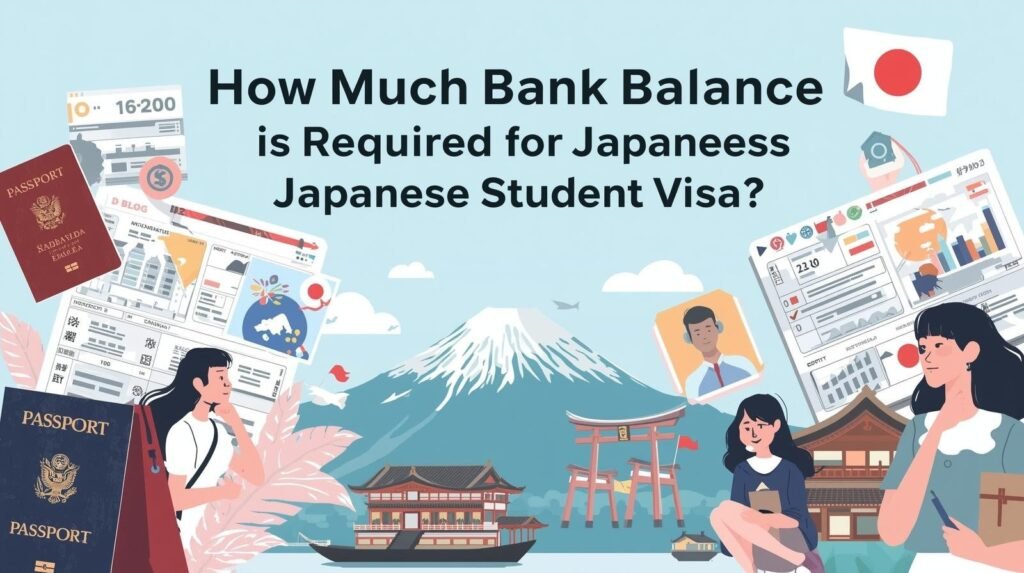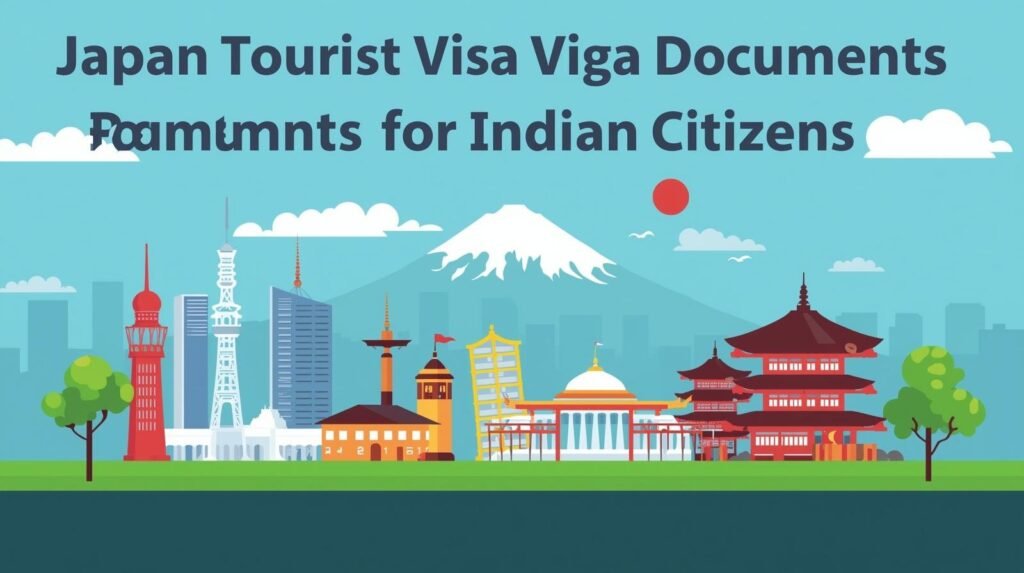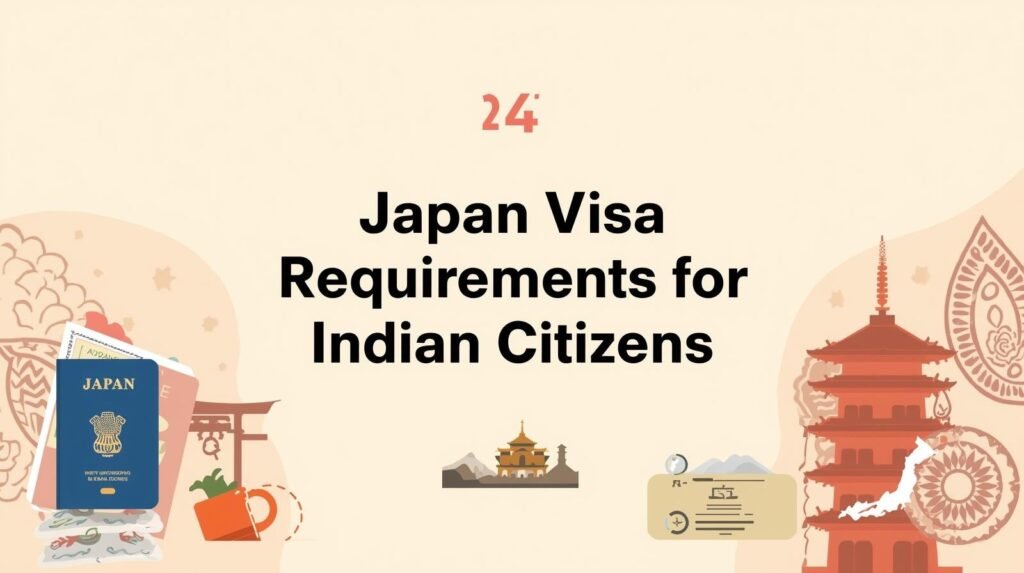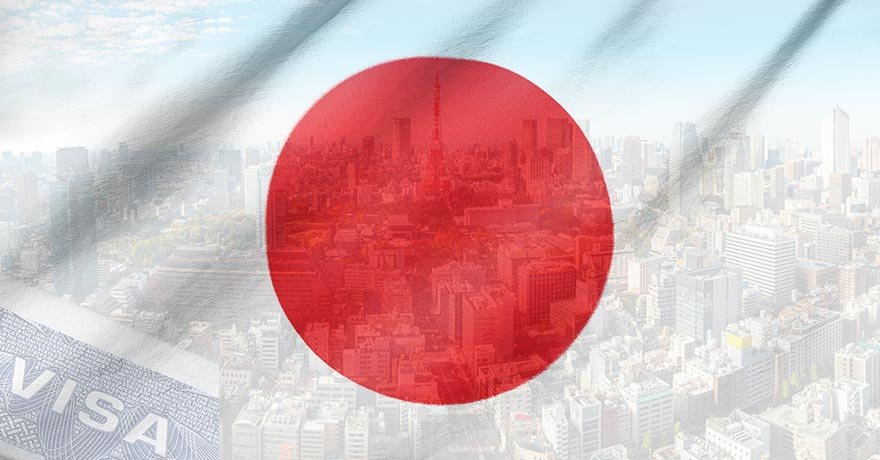Japan has become a preferred destination for Indian students seeking world-class education, cultural experiences, and career growth. With renowned universities, cutting-edge research facilities, and opportunities in fields like engineering, medicine, and business, studying in Japan can be a transformative experience. However, before starting this exciting academic journey, securing a Japanese Student Visa from India is essential.
One of the most common concerns for Indian students is understanding how much bank balance is required for a Japanese student visa and the overall visa application process. From preparing the necessary documents to navigating visa fees and eligibility criteria, the process can seem overwhelming.
In this detailed guide, we’ll cover everything you need to know about applying for a Japanese student visa from India, including financial requirements, tourist visa information, and essential tips. For further resources and expert advice, explore more at Gotojapannow!
How Much Bank Balance is Required for a Japanese Student Visa?
Indian students applying for a Japanese student visa must provide proof of sufficient funds to cover tuition and living expenses. Japanese immigration authorities generally expect applicants to show a bank balance of around INR 8–12 lakhs, depending on the course and city of study. This financial proof ensures that students can support themselves during their stay in Japan without relying on external assistance or facing financial difficulties.

- ₹20 lakh to ₹30 lakh for undergraduate or graduate programs.
- ₹15 lakh to ₹20 lakh for short-term language courses or diploma programs.
Why is Proof of Financial Support Required?
- It assures the authorities that you can sustain yourself during your stay in Japan.
- It covers tuition fees, accommodation, and personal expenses for Japanese student visa
- It minimizes the risk of illegal employment.
Documents Accepted as Proof of Financial Support
- Personal bank statements (last 6 months).
- Sponsorship letter from parents or guardians.
- Scholarship documents (if applicable).
- Fixed deposits or savings certificates.
Ensure the documents are genuine and clearly show the required amount. For further tips on preparing financial documents, visit Gotojapannow.
Japan Tourist Visa Documents for Indian Citizens
If you are planning a short visit to Japan, whether for tourism, sightseeing, or visiting family and friends, you will need to apply for a Japan tourist visa. This visa allows travelers to stay in Japan for a limited period, usually up to 90 days, depending on the type of visa issued. Applicants must submit essential documents such as a valid passport, visa application form, recent photographs, travel itinerary, and proof of financial resources. Some travelers from visa-exempt countries may not require a visa. Always check the latest requirements with the Japanese embassy or consulate before planning your trip.

Essential Documents:
- Valid passport (at least 6 months validity)
- Completed Japan Visa Application Form
- Recent passport-sized photographs
- Confirmed return flight tickets
- Hotel booking or accommodation proof
- Bank statements showing a sufficient balance (₹1.5 lakh to ₹3 lakh recommended)
- Income tax returns (ITR) or salary slips
The process typically takes 5 to 7 working days. For any uncertainties regarding documentation, check Gotojapannow for expert assistance.
Japan Tourist Visa for Indian Fees
The Japan tourist visa fee for Indian travelers is relatively affordable. For a single-entry visa, the fee is approximately INR 3,000–4,000. Multiple-entry visas may cost slightly more. Fees are payable at the Japanese embassy or consulate during application submission and may vary based on currency exchange rates.
- Single Entry Visa: ₹500 – ₹700
- Multiple Entry Visa: ₹1,300 – ₹1,500
- Transit Visa: ₹400 – ₹500
Note that fees may vary based on exchange rates. Payments are usually accepted in cash at the Japanese Embassy or Consulate.
Japan Visa on Arrival for Indian Citizens
Indian citizens cannot obtain a visa-on-arrival in Japan. All travelers must apply for a visa in advance at the Japanese embassy or consulate in India. Proper submission of documents, including a valid passport, application form, photographs, and financial proof, is mandatory for approval before traveling to Japan.
If you’re planning to visit Japan, you must apply for a visa before your departure. The most recommended option is to apply for a tourist visa or a business visa if applicable.
Stay updated on visa policies through resources available on Gotojapannow.
Japanese Student Visa Application Form
The Japanese student visa application form is a vital document required to apply for a student visa. It captures essential personal, educational, and travel information, helping the embassy assess your eligibility. Completing the form accurately and honestly is crucial, as any errors or discrepancies can delay the application or lead to rejection. Always ensure that the form is filled clearly, signed where necessary, and submitted along with supporting documents such as the Certificate of Eligibility, passport, admission letter, and financial proof.
Where to Get the Form?
Indian students applying for a Japanese student visa can obtain the application form in two primary ways. The first option is to download the form directly from the official website of the Japanese Embassy in India, ensuring that you have the most up-to-date version. The second option is to collect the form in person from the nearest Japanese Consulate or an authorized VFS center, which also provides guidance on submission procedures. Obtaining the correct form and following official instructions is crucial for a smooth visa application process.
- Download it from the Japanese Embassy website.
- Collect it from the nearest Japanese Consulate or VFS center.
How to Fill Out the Form
When completing the student visa application form, it is essential to provide accurate personal information that matches your passport, including full name, date of birth, nationality, and contact details. Clearly state your purpose of visit as “Study” to indicate your intention to pursue education in Japan. Include the name of your university, program, and course details, ensuring all information aligns with your acceptance letter. Provide complete details of your accommodation in Japan, such as dormitory or rental arrangements. For a step-by-step guide and tips on filling out the form correctly, visit Gotojapannow.
- Provide accurate personal information (as per your passport).
- Clearly state your purpose of visit as “Study.”
- Mention your university’s name and course details.
- Provide details of your accommodation in Japan.
For a detailed guide on filling out the form correctly, visit Gotojapannow.
Read more about Student Visa Process for Studying in Japan
Student Visa Japan Age Limit
There is no strict age limit for a Japanese student visa, but applicants are generally expected to be within the typical age range for their chosen program. For example, undergraduate or language course students are usually between 18–30 years old. Older applicants may need to provide additional justification for admission and visa approval.
- Undergraduate Programs: Usually 18-25 years.
- Master’s or Ph.D. Programs: No specific limit, but academic background and experience matter.
- Language Courses: 18+ years, with some flexibility.
For career switchers or late applicants, Japan offers opportunities for mature students. Seek further guidance at Gotojapannow.
Japanese Student Visa Cost
The Japanese student visa fee is relatively affordable and competitive compared to other countries. For a single-entry student visa, the cost is approximately INR 3,000–4,000, while multiple-entry visas may be slightly higher. The fee is payable at the Japanese embassy or consulate at the time of application submission. Keep in mind that visa fees are non-refundable, even if the application is rejected. It is advisable to check the latest fee structure on the official embassy website before applying to avoid any discrepancies or surprises.
- Single Entry Visa: ₹2,000 to ₹3,000
- Multiple Entry Visa: ₹4,000 to ₹6,000
- Processing Fees: May apply depending on the VFS service center.
In case of visa rejection, the fees are non-refundable. For cost-effective visa application support, visit Gotojapannow.
Japan Visa Requirements for Indian Citizens
Indian citizens must meet specific requirements to apply for a Japanese visa. These include having a valid passport with at least six months of validity, a completed visa application form, recent passport-sized photographs, and supporting documents relevant to the visa type, such as an admission letter for student visas or a travel itinerary for tourist visas. Applicants must also provide proof of sufficient financial resources and, if required, attend an interview at the Japanese embassy or consulate to ensure eligibility and credibility.

General Requirements:
Indian students planning to study in Japan must prepare several essential documents to ensure a smooth visa application process. A valid passport with at least two blank pages is required, along with a completed visa application form submitted to the Japanese Embassy or Consulate. Applicants must also provide a Certificate of Eligibility (COE) issued by the university or Japanese immigration authorities for student visas. Proof of financial support, such as bank statements or a sponsor letter, is necessary to demonstrate the ability to cover tuition and living expenses. Finally, recent passport-sized photographs taken within the last six months must be included.
- Valid passport with at least 2 blank pages.
- Completed visa application form.
- Certificate of Eligibility (COE) (for student visas).
- Proof of financial support (bank balance or sponsor letter).
- Recent passport-sized photos (within 6 months).
🛡 Additional Requirements for Students:
Indian students must submit several important documents when applying for a student visa. A formal acceptance letter from a recognized Japanese university is required to confirm enrollment. Proof of accommodation, such as a dormitory confirmation or rental agreement, must also be provided to show where the student will reside during their stay. Additionally, students need to submit academic transcripts and certificates from previous education to demonstrate eligibility for their chosen program. All documents should be accurately translated into English or Japanese where necessary to ensure smooth processing. For a detailed and updated checklist, refer to Gotojapannow.
- Acceptance letter from a recognized Japanese university.
- Proof of accommodation.
- Academic transcripts and certificates.
Ensure all documents are translated into English or Japanese where necessary. For a detailed checklist, refer to Gotojapannow.
Frequently Asked Questions (FAQs)
1. How much bank balance is required for a Japanese student visa for Indian students?
Indian students applying for a Japanese student visa must demonstrate that they have sufficient financial resources to cover tuition fees, living expenses, and other costs during their stay in Japan. Typically, authorities expect applicants to have a bank balance of around ₹20–30 lakh, depending on the type of course, its duration, and the city of study. This financial proof is crucial to show that the student can sustain themselves independently without relying on external assistance. Banks statements, fixed deposits, or scholarship letters are commonly used to satisfy this requirement.
2. How can Indian students apply for a Japanese student visa?
The process begins with securing admission to a recognized Japanese university, college, or language school. After admission, the institution applies for a Certificate of Eligibility (COE) from the Japanese Immigration Bureau. The COE is a critical document required to apply for a student visa. Once issued, applicants must submit the COE along with a valid passport, completed visa application form, passport-sized photographs, and any other required documents at the Japanese embassy or consulate in India. Following proper submission, the visa is processed and granted, allowing the student to travel and study legally in Japan.
3. Is a Japan visa easy for Indians?
Yes, obtaining a student visa for Japan is generally straightforward for Indian applicants, provided all documentation, financial proof, and eligibility criteria are properly met. Timely submission of accurate documents, clear communication with your chosen institution, and following embassy guidelines significantly increase the chances of approval. Preparing in advance and ensuring no discrepancies in your application can make the process smoother and minimize delays.
4. How long does it take to get a Japan visa from India?
The standard visa approval for general applicants usually takes 5–10 working days, but the student visa process may take longer because of COE issuance. The COE itself can take 1–3 months to process, depending on the university and immigration office. Therefore, it is advisable for students to start the application process several months before their course begins to avoid last-minute delays or complications. Early preparation allows sufficient time for document verification and visa approval.
5. Can students work on a Japanese student visa?
Yes, students on a Japanese student visa can work part-time, provided they obtain a work permit from the immigration authorities. During academic terms, students are allowed to work up to 28 hours per week, while during vacations or official breaks, the work limit increases to 40 hours per week. Part-time work offers students the opportunity to gain professional experience, improve Japanese language skills, and supplement their living expenses, all while staying compliant with Japanese immigration regulations.
6. What documents are required for a Japanese student visa?
The key documents required for a Japanese student visa include:
- Certificate of Eligibility (COE) issued by the Japanese Immigration Bureau
- Valid passport
- Completed visa application form
- Recent passport-sized photographs
- Admission letter from the university or school
- Academic transcripts and certificates
- Proof of sufficient financial resources (bank statements, fixed deposits, scholarships)
Some institutions may also request medical certificates, letters of recommendation, or additional supporting documents depending on the course and program requirements.
7. Can I extend my student visa in Japan?
Yes, if you plan to continue your studies beyond the original visa validity, you can apply for a visa extension at the local immigration office in Japan. Approval is granted based on enrollment confirmation, academic progress, and adherence to visa regulations. It is recommended to apply one month before your visa expires to ensure a seamless transition and avoid overstaying, which could lead to penalties or legal complications.
8. Is IELTS or TOEFL required for a Japanese student visa?
English proficiency tests such as IELTS or TOEFL are not mandatory for all programs. Some universities or courses taught in English may require these scores, while Japanese language schools often accept JLPT (Japanese Language Proficiency Test) certificates instead. Applicants should always verify the language requirements with their specific institution before applying, as requirements vary depending on the course language and program type.
9. How long is a Japanese student visa valid?
The validity of a student visa in Japan typically ranges from 6 months to 2 years, depending on the type and duration of the program. Long-term undergraduate or graduate programs usually require a visa that matches the full course length. Short-term language programs may only require a 6–12-month visa. Student visas can be extended if necessary, provided the student continues to meet enrollment and academic requirements.
10. Can my family accompany me on a student visa in Japan?
Yes, immediate family members, including spouses and children, can apply for a dependent visa to accompany the student in Japan. Applicants must demonstrate sufficient financial resources to support their family members during the stay. Dependent visas allow families to reside legally in Japan, although spouses may face work restrictions unless they obtain a separate work permit. This option is ideal for students planning long-term studies or relocating with their families.
Conclusion
Applying for a Japanese student or tourist visa from India requires careful planning and preparation, particularly regarding financial proof and supporting documents. Ensure you maintain a sufficient bank balance, gather all necessary paperwork, and follow the correct application process to avoid delays or complications. Being organized and thorough increases your chances of a smooth visa approval. For the latest tips, updates, and step-by-step guidance on applying for a Japanese visa, visit GotoJapanNow and take the first step toward an exciting and rewarding journey to Japan today!
Read more-: How to Study in Japan from India

